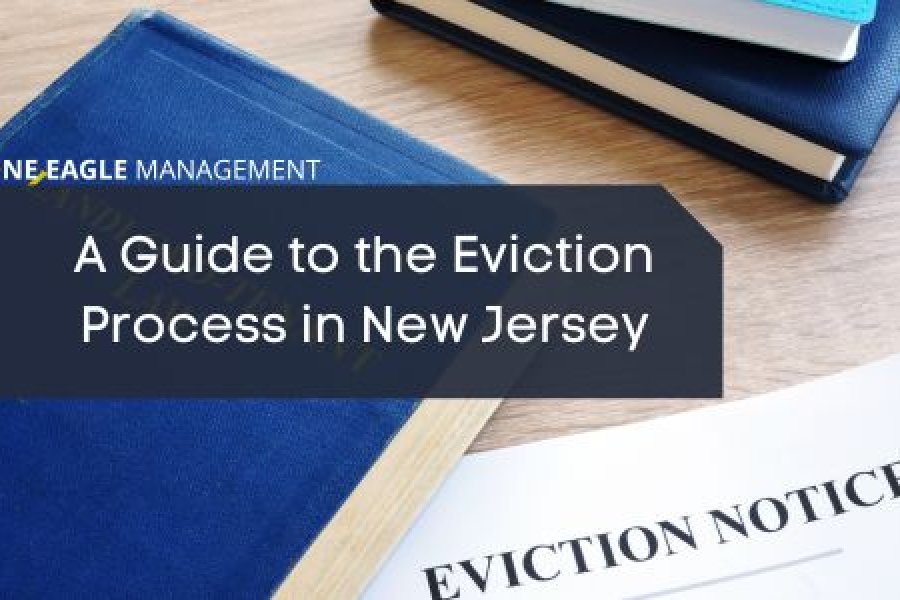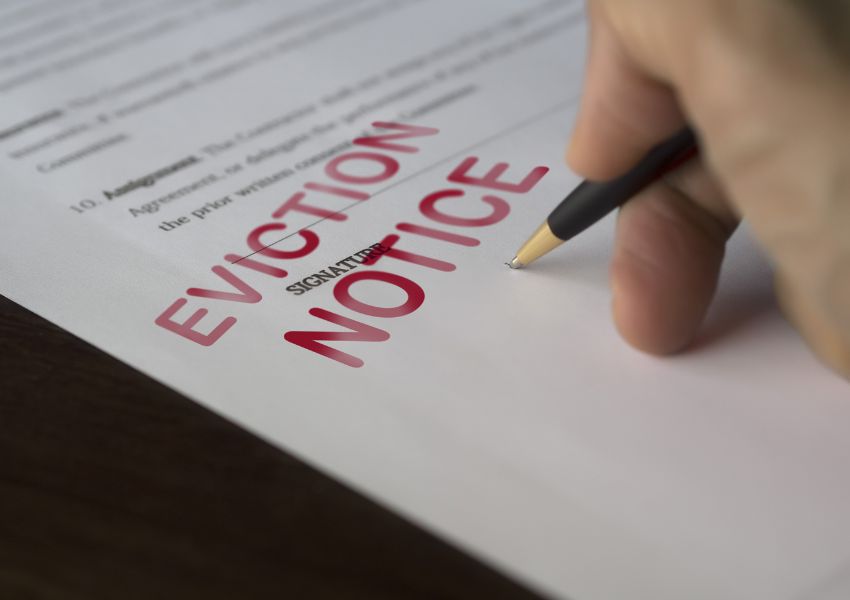
No landlord wants to deal with an eviction. After all, evictions mean a loss of your stable rental income and will have additional expenses, such as legal fees and court costs. Additionally, filing court documents, attending hearings, and coordinating the removal of tenants, on top of working to find new renters, can put a lot of stress on you.
There are many things a landlord can do to reduce the likelihood of evictions, including screening tenants and writing a solid lease or rental agreement. However, even with those measures, evicting tenants is sometimes unavoidable. As such, it’s essential for landlords understand the New Jersey eviction process.
In this article, the experts at Lone Eagle Management will go over everything you should know about how to legally evict a tenant.
An Overview of Conducting Evictions in New Jersey
The process for a landlord to evict a tenant can take as little as three weeks and as much as three months, depending on the reason for the eviction. However, if tenants request a jury trial, the process can take longer.
While every case is different, the process consists of these general five steps:
- The landlord serves the tenant with a written notice specifying the reason for eviction.
- The landlord files a complaint with the court (if the issue is unresolved).
- The court holds a hearing and issues a judgment.
- A warrant for removal is issued and the tenant is removed from the property.
- Possession of the property is returned to the landlord.
Here’s an explanation of every step of an eviction:

Sending an Eviction Notice for Lease Termination
A New Jersey landlord can evict their tenant for several reasons including for:
- Nonpayment of rent
- A history of delinquent or late rent
- Lease or rental agreement violations
- Illegal activities
- Having no valid lease agreement or end of the lease
The type of eviction notice used is determined by the reason for the termination. In New Jersey, a landlord is not required to give written notice to evict a tenant for nonpayment of rent. However, a landlord does have to give at least 3 days’ notice for evictions due to illegal activities and at least 30 days’ notice for evictions for any other reason.
Serving a Tenant with an Eviction Notice in New Jersey
In New Jersey, an typically begins with a Notice to Quit. This written notice notifies the tenant to vacate the property within a specified timeframe. Without a cause, the procedure for terminating the lease or rental agreement will depend on the length of the tenancy.
Landlord-tenant laws in New Jersey require landlords to give the tenant a 30 days’ notice to end their tenancy for monthly leases, 7 days’ notice for week-to-week leases, and 90 days’ notice for yearly leases.
If the tenant does not comply, the landlord can file a Complaint for Eviction in the Special Civil Part of the Superior Court. After the tenant is served the complaint, a court hearing will be scheduled within 10 to 30 days.

Tenant Eviction Defenses in New Jersey
The defense is a reason the tenant claims they shouldn’t be evicted. A tenant may claim:
- The landlord refused to take rent within the 5-day grace period.
- The monthly rent being requested isn’t the one on the lease agreement.
- The landlord overcharged them for the rent amount stated in the lease agreement.
- The property didn’t meet habitability standards.
These during the court hearing reasons can be enough for a judge to dismiss the eviction case. However, if the issue persists, landlords can submit a new complaint to restart the eviction.
Attending Court Hearing
New Jersey’s landlord-tenant laws require that the landlord and tenant both attend the court hearing. If the tenant fails to show up for the hearing, the judge may issue a default judgment in favor of the landlord. This means that the tenant will have to move out.
If you’re evicting a tenant for nonpayment of rent, it’s important to know that renters can pay the full amount owed within three business days of the date the judgment is issued. If they do so, they will be able to avoid eviction, even if the judicial officer has ruled in the landlord’s favor.
Warrant of Removal
If the judge rules in favor of the landlord, whether it’s a default judgment or at the eviction hearing, a warrant to remove the tenants will be issued within three business days. This acts at the tenant’s final notice to vacate the rented property and gives them a chance to collect their belongings before being forcibly removed from the property.

The Eviction
Evictions in New Jersey can be scheduled within 3 business days of the warrant for removal being issued. That said, a landlord, you aren’t permitted to evict tenants yourself. Instead, they must allow Special Civil Part Officers to handle the eviction.
In the state of New Jersey, a renter can request an order of “orderly removal,” which gives them up to 7 days to move out. They can also request a “hardship to stay” for up to 6 months. However, they can only do this if they don’t have any late or missing payments.
Bottom Line
Evictions are not easy to deal with. In the state of New Jersey, the eviction process begins with the landlord serving the tenant with a Notice to Quit. If the tenant doesn’t vacate the property, the landlord can file a Complaint for Eviction and later attend a court hearing.
If the judge rules in favor of the landlord, a Warrant for Possession is issued, meaning that the eviction will take place. Understanding this process will help you be better prepared in case you need to evict a tenant.
If you have more specific questions about New Jersey eviction laws, contact Lone Eagle Management! Our team of experts can provide guidance to make this a stress-free process for you.
Disclaimer: This blog should not be used as a substitute for legal advice from a licensed attorney in your state. Laws frequently change, and this post might not be updated at the time of your reading. Please contact us for any questions you have in regards to this content or any other aspect of your property management needs.